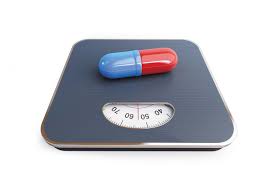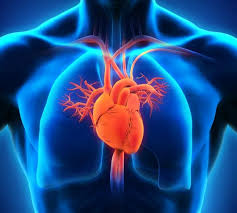“Lose weight instantly!!!!”
Have you heard this phrase many times?
Many people, in their struggle with weight loss, look forward to diet pills as some magic pill that will give them results overnight. Lured by the idea of losing pounds without sweating it out at the gym or starving oneself to death, it can be quite tempting. So we are here to bust some myths about these diet pills, and see if they work?
Myths and facts about diet pills:
Myth 1: Diet Pills Are a Magic Solution for Weight Loss
Fact: There is no magic tablet for losing weight. Diet pills can indeed aid in weight reduction, but they are not the only solution. While a combination of healthy eating, regular exercise, and changed behavior brings permanent weight loss, diet pills may lend some support; however, their action alone cannot bring long-lasting results.
Myth 2: All Diet Pills Are Safe as they are sold as "Over-the-Counter"
 Fact: Just because the diet pills are over-the-counter does not mean they are safe. Their regulation is not as tight as compared to prescription medications. Diet pills might include harmful ingredients or cause serious side effects. Always research the ingredients and consult with a health professional before taking any diet pill.
Fact: Just because the diet pills are over-the-counter does not mean they are safe. Their regulation is not as tight as compared to prescription medications. Diet pills might include harmful ingredients or cause serious side effects. Always research the ingredients and consult with a health professional before taking any diet pill.
Myth 3: Prescription Diet Pills Are Dangerous
Fact: Prescription diet pills have the seal of approval from regulatory authorities like the FDA, so their safety and efficacy are ensured through rigorous testing. However, much like other medications, they can still have side effects, seeing that they are not fit for everyone. Usually, they are prescribed to people who need to lose a lot of weight and for whom the benefits outweigh the risks.
Myth 4: All Natural Diet Pills Are Safe
 Fact: Just because some pill is “natural” or “naturally made” doesn't mean that it is safe for you. So, many natural diet pills contain very potent ingredients that, often, can easily proffer side effects or relate to other medications. For instance, the FDA banned ephedra, a herbal stimulant, due to the serious health risks associated with it, such as heart problems. The use of natural diet pills should, therefore, always be done with caution and after professional advice.
Fact: Just because some pill is “natural” or “naturally made” doesn't mean that it is safe for you. So, many natural diet pills contain very potent ingredients that, often, can easily proffer side effects or relate to other medications. For instance, the FDA banned ephedra, a herbal stimulant, due to the serious health risks associated with it, such as heart problems. The use of natural diet pills should, therefore, always be done with caution and after professional advice.
How do Diet Pills Work?
Diet pills work in various ways, which include the following:
Appetite Suppression:
Diet pills, in some cases, are reported to contain ingredients that facilitate a reduction in hunger sensation, making eating less easy. These may include some fiber-based supplements that expand inside the stomach or medicines influencing brain chemicals relating to hunger.
Fat Absorption Blockers:
 Many diet pills act by blocking the absorption of fat from your diet. The principle of action of the prescription drug Orlistat falls under this category. The enzyme is responsible for breaking down fat in the intestines.
Many diet pills act by blocking the absorption of fat from your diet. The principle of action of the prescription drug Orlistat falls under this category. The enzyme is responsible for breaking down fat in the intestines.
Metabolism Enhancers:
Some pills can increase metabolic rate so that the body burns out more calories. This is normally done with ingredients such as caffeine and green tea extract.
Thermogenic agents:
These are ingredients in the powder that increase the quantity of heat produced in the body and therefore may create more calories to be burned.
Common Ingredients in Diet Pills
It can be valuable for one to understand the common ingredients used in diet pills among all these dietary supplements on the market.
Caffeine:
 Intestinal motility-stimulating agents, could, in principle, raise the metabolism and oxidation of fatty acids. The long-term effects can cause poor sleep, nervousness, and palpitation.
Intestinal motility-stimulating agents, could, in principle, raise the metabolism and oxidation of fatty acids. The long-term effects can cause poor sleep, nervousness, and palpitation.
Garcinia Cambogia:
Tropical fruit extract purported to inhibit fat production and lower appetite. While some studies show modest weight loss benefits, evidence remains inconclusive.
Green Tea Extract:
Packed with antioxidants, it's believed to increase the amount of fat being burned. Generally considered safe, though extremely large doses can cause liver problems in a few individuals.
Glucomannan:
A fiber subtype that expansively fills the stomach, creating a feeling of fullness. It's highly effective in suppressing appetite and generally safe provided it is taken within the orientation provided.
Raspberry Ketones:
 Known to break the fat and increase the amount of adiponectin, a hormone responsible for metabolism. However, the fact remains that most of their studies have been conducted on animals; there are very limited human studies conducted.
Known to break the fat and increase the amount of adiponectin, a hormone responsible for metabolism. However, the fact remains that most of their studies have been conducted on animals; there are very limited human studies conducted.
Possible Risks and Side Effects
Diet pills, whether prescription, OTC, or even natural, do come with the potential risk of side effects. Among the common side effects are:
Digestive Issues:
Bloating, gas, diarrhea, and constipation are common among a wide array of diet pills.
Heart Problems:
 Most of the new diet pills that are out on the market, especially those that are stimulant-based, can increase heart rate and blood pressure to very dangerous levels and set a person up for major cardiovascular problems. Addiction is yet another aftereffect of these diet pills whereby a person is fooled into a psychological dependence on the drug and holds on to the notion that they can't lose weight without the drug.
Most of the new diet pills that are out on the market, especially those that are stimulant-based, can increase heart rate and blood pressure to very dangerous levels and set a person up for major cardiovascular problems. Addiction is yet another aftereffect of these diet pills whereby a person is fooled into a psychological dependence on the drug and holds on to the notion that they can't lose weight without the drug.
Conclusion: An Informed Approach to Diet Pills
Although diet pills might give one a small jump-start to get on the journey of losing weight, they do not replace healthy living. A good diet, along with regular exercise and changing some lifestyle habits that are achievable in the long run, remains the best avenue toward losing weight. If you consider resorting to diet pills, do your homework, be aware of the risks involved, and seek advice from a professional healthcare provider.
In the end, it should be long-term health and well-being, not short-term solutions. One loses weight gradually, and so it is a matter of patience, perseverance, and high-quality choice-making toward a goal of genuinely healthy weight. It is important to prioritize your health, and if needed always consult a doctor.
